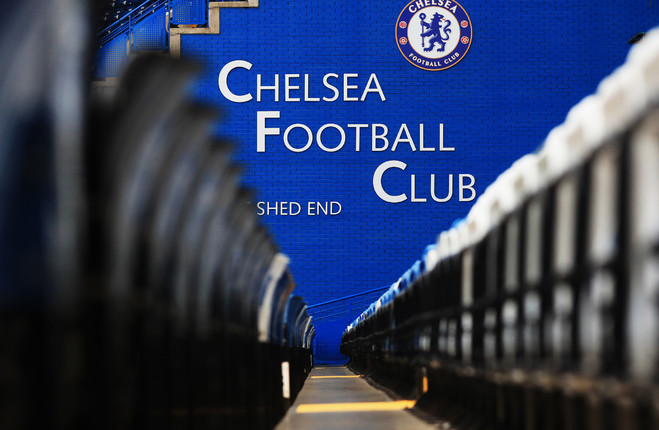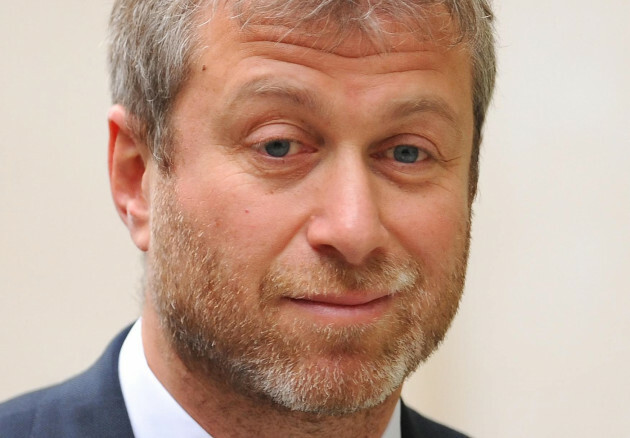TODAY IS THE 117th anniversary of the founding of Chelsea Football Club, and it will be remembered as one of the most turbulent days in that long history.
The UK government this morning announced the sanctioning of owner Roman Abramovich, meaning his assets have been frozen and he has barred from travel to the UK and doing business in the UK.
The decision will have enormous implications for Chelsea Football Club.
Why has Abramovich been sanctioned today?
Abramovich is one of a number of oligarchs today sanctioned by the UK government, in what they say is “part of the UK’s leading efforts to isolate Putin and those around him.”
He has always vehemently denied any links to Russian president Vladimir Putin, but a UK government document today states that Abramovich is “associated with a person who is or has been involved in destabilising Ukraine and undermining and threatening the territorial integrity, sovereignty and independence of Ukraine, namely Vladimir Putin, with whom Abramovich has had a close relationship for decades.”
Can Abramovich proceed with the sale of Chelsea?
No, he cannot personally do the deal: the sanctions prevent him from doing business in the UK.
Whether the sale of the club can still go ahead is shrouded in some uncertainty, as the Telegraph today report that it may happen if Abramovich effectively hands the deal over to the UK government.
Abramovich announced last week that he was putting Chelsea up for sale, having first bought the club in 2003 and led them to an unprecedented era of transfer spending and on-pitch success.
In a statement released last Wednesday week, 2 March, Abramovich announced he had put the club up for sale “in the best interest of the Club, the fans, the employees, as well as the Club’s sponsors and partners.”
Abramovich has bankrolled the club to the tune of £1.5 billion, but he said he would not seek the repayment of those loans.
Chelsea had reportedly set a deadline of this week for declarations of interest, but today’s sanctions have now the sale has put on hold.
Can Chelsea continue to play games?
Yes.
The club have been granted a special – if restrictive – sporting licence to allow them to continue to play games.
“Given the significant impact that today’s sanctions would have on Chelsea Football Club and the potential knock on effects of this, the Government has this morning published a licence which authorises a number of football-related activities to continue at Chelsea”, read a statement on the UK government website.
“This includes permissions for the club to continue playing matches and other football related activity which will in turn protect the Premier League, the wider football pyramid, loyal fans and other clubs.”
Thus Chelsea can continue to play their remaining games in the Premier League, Champions League, and FA Cup, beginning with tonight’s league meeting with Norwich City at Carrow Road.
So how is this decision going to change things for Chelsea?
While the club can continue to play games, they cannot sell tickets for those games.
Hence attendance will be limited to those who have already played for their tickets, predominantly season ticket holders. This, in theory, means that away supporters won’t be permitted to games at Stamford Bridge, as these tickets are sold on a match-by-match basis.
Under the terms of the club’s ‘Russian Regulations’ licence, they can continue to pay wages and bills, but they cannot renew contracts of players and staff, and nor can they sign new players.
Chelsea are effectively under a transfer embargo.
While they cannot sign new players, they may continue paying existing loans and the outstanding transfer fees they owe to other clubs.
They may also receive the monies they are owed from broadcast deals and prize money, but those funds will be frozen. Broadcasters are still permitted to show Chelsea’s games.
Meanwhile, the club are now subject to spending limits around the staging of home games along with travel to away matches.
For home games, they may continue employing caterers, security and stewards, but those costs cannot exceed £500,000 per game. Furthermore, they cannot spend more than £20,000 travelling to an away game, which will likely throw up logistical difficulties regarding next week’s Champions League game away to Lille of France.
For context, Hugo Scheckter, a consultant in football care and team operations, estimates charter travel to a domestic game – including hotel stay, food, and security – to cost around £30,000, and says that Chelsea will likely now be forced to fly commercially and drop the standard of their hotels.
The club are also forbidden from selling merchandise.
The thrust of the licence is to allow Chelsea continue to play games given its cultural importance, but to avoid any money earned while playing those games going to the club’s owner.
But without broadcast and match income, and without Abramovich’s largesse, serious questions are raised as to how Chelsea will continue to pay wages and costs.
How long will Chelsea be under these restrictions?
The licence Chelsea have been granted – under which all of these restrictions are enforced – is currently in place until 31 May, but the UK government say they have the right to revoke, vary, or extend it at any point.



